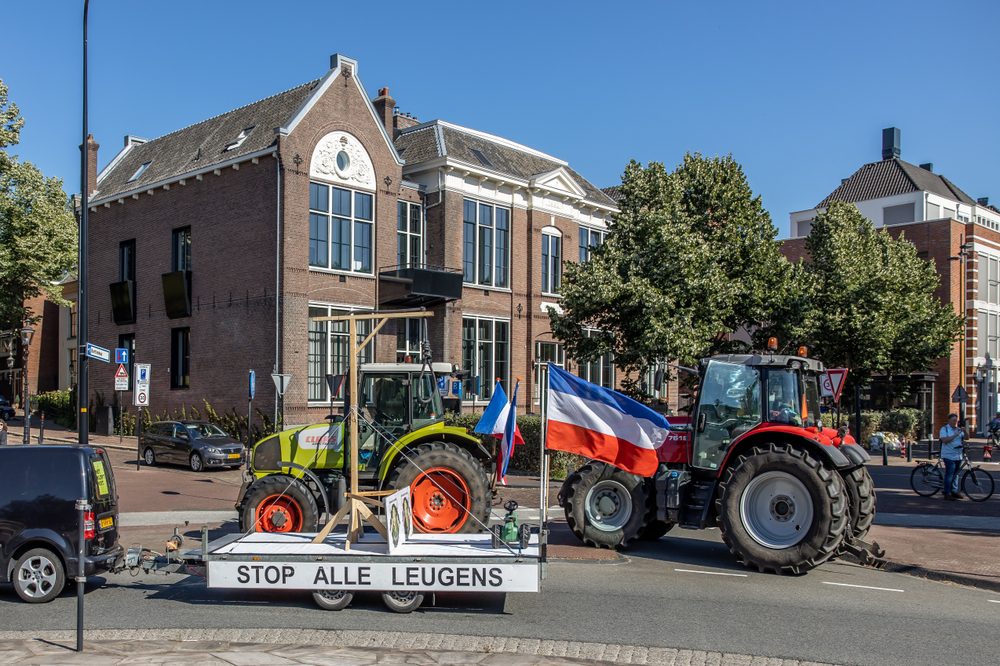
The Dutch government has been accused of inconsistency following its decision to contribute €100 million to a World Bank fund for Ukrainian farmers, while attempting to marginalise its own agricultural industry through stricter emission regulations.
Dutch Minister for Foreign Trade and Development Cooperation, Liesje Schreinemacher, made the announcement at a meeting of the World Bank in Washington Saturday, April 15th. He clarified that financial aid would be directed towards the purchase of new farm equipment for the war-torn nation.
The contribution is part of a total €2.5 billion package promised by the Dutch government, consisting mostly of military aid to Ukraine, whom the Dutch government has consistently backed since the annexation of Crimea in 2014.
The pledge of additional finance comes as the Dutch government faces a grassroots farmers’ revolt over attempts to implement anti-emissions diktats and reduced livestock numbers. Conservative pundits have highlighted the gross hypocrisy of the move given the electoral surge shown by the agrarian populist party BBB.
The emissions proposals were met by fierce opposition, who see the plan as an existential threat to the economically vital Dutch agricultural industry. The Dutch press revealed that the EU Commission played a major role in pushing for emission targets, alongside the aggressive forced buyout of farmers.
🇳🇱 The Dutch government announced it will be giving a 100 million euros in aid to Ukrainian farmers. 🇺🇦
— Eva Vlaardingerbroek (@EvaVlaar) April 15, 2023
All whilst spending billions on the destruction of our own #DutchFarmers.
We’re being ruled by the worst of the worst globalist scum.
Mark Rutte, you make me sick.
The war in Ukraine has challenged EU food security, as Ukraine is the primary supplier of rapeseed oil and corn to the European market. Eastern European nations are currently in a standoff with Brussels over an embargo of Ukrainian grain imports. Eastern EU member states claim the ban is due to oversupply and product quality; Brussels declares the blockade illegal.
Across Europe, there seems to be a growing spirit of rebellion among agricultural communities as the EU’s green transition policies threaten the livelihoods of farmers with a push to phase out meat and the use of certain fertilisers. Wishing to ban the sale of new combustion engine vehicles by 2035, the EU is getting negative feedback from farmers and agribusiness for its Farm to Fork policies and attempts to prepare the industry for the green transition.
Next week, Dutch MEP Rob Roos, a senior politician of the JA21 party, will be participating in a panel discussion, “Europe: A Green New World?” sponsored by The European Conservative. He will be joined by policy experts Samuel Furfari and Sebastian Morello who will also discuss how the EU’s hyperregulation, under the guise of the Green Deal, hurts ordinary people, destroys their health, and their livelihoods. The event will take place at the Square de Meeûs’ Silversquare working space, from 13:30-16:15 on April 26th. It is open to the public but registration is required.
